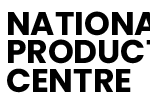The National Productivity Centre (NPC) has urged Nigerian businesses and government agencies to adopt Kaizen, a globally recognized strategy for continuous improvement, to enhance efficiency and competitiveness.
Speaking at the 2nd National Kaizen Conference in Abuja, NPC Director-General Dr. Baffa Dan’Agundi stressed the urgent need for businesses to embrace productivity-enhancing strategies, given the increasing competition in global markets. He explained that implementing Kaizen principles would help businesses streamline operations, cut waste, and improve overall performance.
“With rising competition and economic challenges, Nigerian businesses must rethink their operational strategies to remain competitive. Kaizen provides a cost-effective way to enhance efficiency and drive sustainable growth without requiring massive capital investments,” Dan’Agundi said.
The event, organized in collaboration with the Japan International Cooperation Agency (JICA), brought together government officials, business leaders, and industry experts to explore ways of improving productivity across key sectors. Discussions centered on how Kaizen, which has been successfully adopted by top global businesses, can be tailored to Nigeria’s economic landscape.
Dan’Agundi highlighted that beyond increasing business revenue, Kaizen’s adoption could lead to job creation, economic expansion, and industrial competitiveness. He noted that several industries worldwide have leveraged Kaizen to achieve remarkable efficiency gains, and Nigeria must not be left behind.
“Many of the world’s leading companies use Kaizen to continuously refine their processes and drive profitability. Nigerian businesses that integrate this strategy into their operations will see significant improvements in productivity and cost management,” he stated.
Commending JICA for its role in promoting Kaizen in Nigeria, he called on both public and private sector players to actively integrate continuous improvement strategies into their daily operations. He emphasized that creating a culture of efficiency and problem-solving within organizations would position them for long-term success.
JICA Nigeria’s Chief Representative, Susumu Yuzurio, reinforced the benefits of Kaizen, stating that its adoption could lead to higher efficiency, reduced operational costs, and better product quality. He pointed out that Kaizen has played a crucial role in transforming industries across Japan and other parts of the world.
“Kaizen, which means ‘change for the better,’ is not just a theoretical concept but a practical strategy that has revolutionized industries globally. Nigerian businesses that embrace it will strengthen their ability to compete in both local and international markets,” Yuzurio said.
He added that Kaizen encourages incremental but continuous improvements, ensuring that companies become more adaptable to changes in market dynamics.
Business leaders at the conference emphasized the need for stronger policy support, workforce training, and collaboration to ensure the widespread adoption of Kaizen across Nigerian industries. They noted that while the concept is simple, its successful implementation requires a commitment to organizational culture change.
Industry experts pointed out that resistance to change, lack of awareness, and inadequate technical expertise remain key challenges to adopting Kaizen in Nigeria. They called on the government to introduce targeted incentives and policies that encourage businesses to implement productivity-enhancing strategies.
“To fully harness the benefits of Kaizen, there needs to be a national strategy that supports businesses through training, funding, and technical assistance. Without these, many organizations may struggle to implement the principles effectively,” said one business leader.
Participants at the conference agreed that as Nigeria seeks to boost industrial productivity, cut inefficiencies, and improve global competitiveness, adopting Kaizen could be a game-changer for businesses aiming for long-term success.
As discussions continue, stakeholders hope that more Nigerian businesses will integrate Kaizen principles into their operations, helping to build a more efficient and resilient economy.










